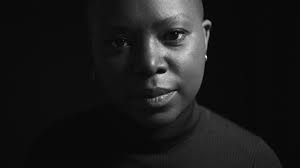233 total views, 1 views today
Milisuthando 2023 Movie Review
The common image of apartheid South Africa often involves outright racial violence in the streets and cluttered townships straddling the country’s major cities. But there’s another underdiscussed element to the apartheid system, where separatist Black states where declared as independent entities within the country. The first of those forms a central concern of Milisuthando, a deeply personal and political documentary from a woman who experienced this phenomenon first hand.
Named after its director Milisuthando Bongela, Milisuthando chronicles the reflections of a woman who spent her early years in the Transkei, a Black-controlled state that was formally recognized as independent within the wider South African regime. Like America’s “separate but equal” policy on steroids, the Transkei’s residents lived within an illusion of equality, where comfortable middle class lifestyles belied the bigger picture of racial discrimination outside of their borders. For the White powers, it was used as a positive symbol of apartheid’s greatness, with the Transkei’s leader effectively touting similar beliefs. When former residents of the Transkei and other such Black homelands became integrated into the wider society in the post-apartheid era, however, they were forced to reckon with the realities of their presumed privilege.
Milusanthando represents Bongela’s own act of wrestling with the legacy of apartheid, crafted like a stream of consciousness involving archival footage, personal testimonies and present day homecomings. Told in five parts, Bongela’s poetic narration immediately draws us in, while the images are set to equally captivating music. She lays the foundation with concise but insightful context, showing a flurry of photos and videoclips from the years leading up to the 1994 end of apartheid, showcasing the well-appointed lifestyles of upwardly mobile Black people and the broader politics that gave rise to their unique situation.
This montage is one of several brilliant ones which immediately convey a sense of the strange oxymoron of oppression and liberation that underpinned this aspect of apartheid. Indeed, one particularly expressive sequence shows seemingly innocuous scenes ranging from ceremonial occasions to casual socializing in both Black and white contexts. But the eerie music implores us to lean in and contemplate the subtle hints of dysfunction, like the inserts of Black miners and the exploitative implications.
Indeed, while there’s a certain level of nostalgia involved in the film’s undertaking, Milisthando transcends mere curiosity towards the Black homelands for a deeper, soul-bearing examination of South Africa’s transition from apartheid rule to present-day democracy. This is most potent in the more contemporary passages of the overarching narrative, which include a range of uncomfortable but necessary discussions. Within the inviting homes of older Bongela’s older Transkei relatives, for example, they literally sing the praises of their segregated society (with anti-Mandela resentments to boot). Meanwhile, she challenges the friendships with her closest White friends, who eloquently express their unsettling feelings of inherited White guilt. And when we see the tensions surrounding newly integrated post-apartheid schools, it’s further evidence that the institution of Black homelands was hardly an altruistic endeavor.
Milisuthando is truly a multi-faceted account of the lasting legacy of apartheid in South Africa. Though it’s billed as a personal essay, it feels more monumental than that. Rather, it’s a profound work of art that evokes the essence of a nation through its people and the ever-shifting social structures that moulded them.
